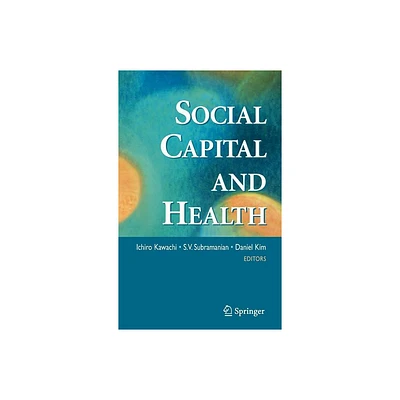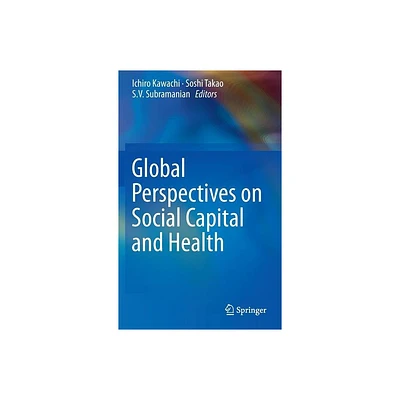Home
Social Capital as a Health Resource in Later Life: The Relevance of Context
Loading Inventory...
Barnes and Noble
Social Capital as a Health Resource in Later Life: The Relevance of Context
Current price: $109.99


Barnes and Noble
Social Capital as a Health Resource in Later Life: The Relevance of Context
Current price: $109.99
Loading Inventory...
Size: OS
*Product Information may vary - to confirm product availability, pricing, and additional information please contact Barnes and Noble
This book examines the social aspects of healthy ageing for older individuals. It features more than 15 papers that explore the relevance of the social environment for health on the micro, meso, and macro level. Overall, the book applies a comprehensive contextual approach that includes discussion of how family and friends, neighborhoods, nations, and welfare regimes influence health.
The book first explores the issue on the individual level. It looks at the importance of social capital for health among older people, examines types of social networks and health among older Americans, as well as discusses dynamic social capital and mental health in late life.
Next, the book looks at the issue through a neighborhood and societal context, which takes into account day-to-day interaction in the immediate environment as well as the social, health, and economic policies in place in different regions in the world, including America, Europe, Asia, and Africa.
From there, the book goes on to offer implications and recommendations for research and practice, including the management of related concepts of research on well-being and health. It also offers a psychosocial approach to promoting social capital and mental health among older adults.
This book provides health professionals as well as researchers and students in gerontology, sociology, social policy, psychology, and social work with vital insights into the social factors that increase healthy life years and promote well-being.
The book first explores the issue on the individual level. It looks at the importance of social capital for health among older people, examines types of social networks and health among older Americans, as well as discusses dynamic social capital and mental health in late life.
Next, the book looks at the issue through a neighborhood and societal context, which takes into account day-to-day interaction in the immediate environment as well as the social, health, and economic policies in place in different regions in the world, including America, Europe, Asia, and Africa.
From there, the book goes on to offer implications and recommendations for research and practice, including the management of related concepts of research on well-being and health. It also offers a psychosocial approach to promoting social capital and mental health among older adults.
This book provides health professionals as well as researchers and students in gerontology, sociology, social policy, psychology, and social work with vital insights into the social factors that increase healthy life years and promote well-being.


















